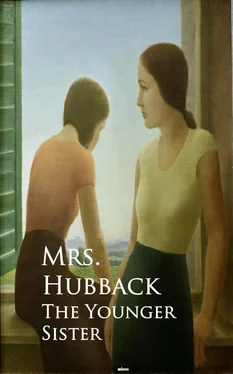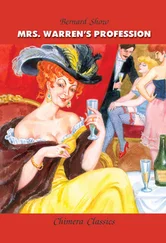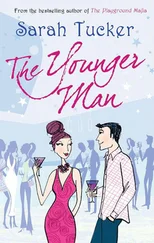"What can we do?" said Emma, as she contemplated the scene in some alarm; "do you think you could drive in such a storm, Elizabeth?"
"Oh, I should not mind venturing," said Miss Watson, "but I am afraid for you; you know you had a cold this morning, and to encounter such a storm would make you worse."
"Encounter the storm!" cried the brother and sister at once, "impossible, not to be mentioned or thought of, much less put in practice—they must wait a little while, if they wished
very much
to return home, and see what patience would produce; in case it did not mend, they might send a message if they feared Mr. Watson would be uneasy—but indeed Mr. Howard thought they had better give up all idea of returning at once, and allow him immediately to dispatch some one to answer for their safety to their father's house. But as to leaving the house during such a tempest, it was quite out of the question."
With the most friendly warmth, every possible accommodation was placed at their disposal; every objection done away as soon as started; every difficulty proved to be a vain fancy of its originator. The idea of the addition to their circle at dinner, did not seem at all to discompose Mrs. Willis; and the minor arrangements, the things to be lent for their use and comfort, appeared rather to bring her positive enjoyment. In a short time, the young ladies felt themselves quite domesticated in the house; their cloaks and bonnets removed, their hair smoothed, and their thick boots exchanged, for comfortable slippers of their new friend, they found themselves again seated comfortably in the pretty parlour—and, ere long, were busily employed in helping Mrs. Willis in the agreeable occupation of sewing certain little colored silk bags which Mr. Howard and Charles afterwards filled with deliciously scented pot-pourri, from the large china jar in the corner of the room. Now, their only subject of uneasiness besides the dread of giving too much trouble, was the fear that their father's comfort would suffer in their absence, as they knew only too well how little Margaret contributed towards his amusement, or sought to spare him trouble.
Dinner time came, and Elizabeth was surprised to find that, although in the vicinity of Osborne Castle, their hour of dining was no later than what she was accustomed to; and still more surprised that the simple meal—the single joint, and the plain, but certainly well-made, pudding which followed it, was considered quite sufficient in itself, and needing no apologies. Not that she expected anything more elegant or uncommon, much less wished for it, but she felt had
she
been the entertainer, she would, certainly, have regretted the absence of further luxuries. The hour of dusk which followed the dinner, was particularly agreeable, as they drew their chairs round the comfortable fire, and chatted with the easy good nature which such a situation and such a combination of circumstances is sure to promote. The man or woman who can be cross and disagreeable at such a moment, must either be cursed with an uncommonly perverse temper, or have eaten a great deal more than is good for the health. This was not the case with either of the five who formed this cheerful group—and Charles very freely expressed his extreme satisfaction at the turn events had taken; appealing to his uncle to confirm his assertion that nothing could be more delightful than the fact of the two Miss Watsons being forced to remain in the house, and to join in his hope that the snow would keep them prisoners for a week to come. Mr. Howard readily assented to his view of their own good fortune in the turn events had taken, and only demurred to his wishes from the doubt whether the young ladies themselves would not find such a detention a severe penalty—in which case, he was sure, even Charles could not wish, for his own gratification, to inflict it on them.
"Oh, certainly not, if they did not like it," cried Charles, "only I am sure Miss Emma, you are too good-natured to object to what would give us all so much pleasure."
"If my opinion or wishes could make any difference to the snow, or serve to open the road, Charles, it would be worth while to form a deliberate decision," said Emma, good naturedly; "but now I want you, in the meantime, to guess this riddle," and she diverted his attention by proposing some charades and enigmas for his amusement.
The diversion soon occupied the whole party, and much mirth ensued at the variety and strange guesses which it gave rise to. Presently a note was brought to Mr. Howard, which after studying near a light for some time, he threw down on the table, and said:
"There, ladies, there is a riddle which I would almost defy you to read—look at it!"
His sister took it up.
"Oh! I see—pray Miss Watson can you read that name?" and she held it out to Elizabeth, who, with Emma, looked at it with great curiosity.
"Is that writing!" cried Emma, "and can any one expect it to be read; I do not understand a word, except the three first."
"Yes," said Elizabeth, "one can read that, 'my dear Mr. Howard,' but the rest appears as if the writer had dipped a stick in an ink bottle, and scribbled over the paper at random—you do not mean to say, you have read it, Mr. Howard?"
"I made out its meaning," said he, looking up from a writing-table, at a little distance, "and I am answering it at this moment."
"Well, you must be much more clever than I am," said Elizabeth, simply, "they are all hieroglyphics to me."
"It is a note from Lady Osborne," said Mrs. Willis, "I know her signature; but I am not sure that I could decipher more."
"Lady Osborne!" cried Elizabeth, looking at it again, but this time with great respect, "do peeresses write in that way."
"Not all, I trust, for the credit of the peerage," replied Mr. Howard, "or, at least, for the comfort of their correspondents."
"It is certainly a great misapplication of abilities," observed Emma, coolly, "for I am sure it must cost a person more trouble to produce such a scrawl than it would to write three legible letters."
"I have no doubt it has cost her ladyship some trouble, and I am certain it has put her to needless expense," said he, "for on one occasion, her steward sent an express to London to enquire the meaning of a note he had received which was intended to announce her return home: they passed the man on the road, and consequently the housekeeper was taken by surprise; how angry she was at the blunder!"
"Well but, Edward, what is the subjects of your present
billet-doux
, or is it a secret that you are answering in such a hurry?"
"It is only to invite me to the castle to-night, to make up their card-table, which I have refused," said he, as he gave his note to the servant and seated himself again.
"Ah, how glad I am," cried his sister, "such a night, to ask you out, though only across the park! The Miss Watson's company affords a sufficient apology even to Lady Osborne, I should think."
"It is a sufficient one to myself," said Mr. Howard, "Lady Osborne may be unable to calculate accurately what I gain by the refusal—but I know that I secure a pleasant party, and escape a dreadful walk, to say nothing of the tedium of the card-table itself; you see how deeply I am indebted to your presence, Miss Watson, which serves me as an excuse on this occasion."
"We always hear virtue is its own reward," said Emma, "and your hospitality to us is now repaid in kind; as you would not allow us to encounter the snow, it would have been unjust that you should be exposed to it yourself."
"Well, Edward, I must say, I should be glad if you had a living in some other part of the country—for you must know," turning to Elizabeth, "that the inhabitants of the castle are almost too near to be pleasant. We are under obligations which neither party can forget, and Edward is compelled to sacrifice a great deal of time, and suffer much occasional inconvenience from the whims of the great lady, which would be all obviated if our residence were fifty miles off. You have no idea how exacting she is; and if my brother were not one of the best-tempered men in the world we never could go on as well as we do."
Читать дальше












